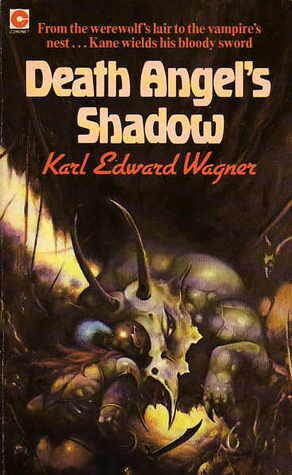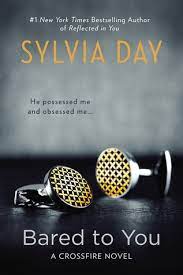
Karl Edward Wagner’s “Death Angel’s Shadow” is a collection of three novellas that delve deep into the life of the enigmatic anti-hero, Kane. Published in 1973, this work stands as a significant contribution to the sword and sorcery genre, blending dark fantasy with existential themes. Wagner, renowned for his deep understanding of horror and the macabre, creates a world where morality is blurred, and the line between hero and villain is almost imperceptible.
The Stories: A Trio of Darkness
- Reflections for the Winter of My Soul:
In this chilling tale, Kane, a red-haired immortal warrior, is invited to the castle of a count during a harsh winter. The story soon reveals the count’s true nature as a werewolf, leading to a deadly confrontation. The novella delves into themes of isolation and the monstrous nature within, exploring Kane’s complex character as both a hunter and hunted. - Cold Light:
Set in a desolate town, this story follows Kane as he confronts a group of religious zealots who are hunting him for his past sins. Wagner expertly weaves a narrative of vengeance and redemption, showcasing Kane’s tactical genius and ruthless nature. The story reflects on the cyclical nature of violence and the cost of power. - Mirage:
This final novella takes Kane into a desert, where he encounters a mirage that leads him to an ancient, cursed city. Here, Wagner’s skill in blending horror and fantasy is at its peak. The novella is a haunting exploration of illusion, reality, and the haunting memories of past deeds.
Wagner’s writing is characterized by its rich, descriptive prose and philosophical undertones. In “Death Angel’s Shadow,” he doesn’t just tell tales of sword fights and magic; he delves into the psyche of Kane, presenting him as a deeply flawed, almost tragic figure. The stories are imbued with a sense of melancholy and a meditation on immortality and the eternal struggle against one’s own nature.
“Death Angel’s Shadow” has been lauded by critics and readers alike for its complex character development and atmospheric storytelling. Wagner’s ability to infuse traditional sword and sorcery with elements of horror and philosophical inquiry sets this collection apart. The tales are not just about Kane’s physical battles but also his internal struggles, making the stories resonate on a deeper level.
Critics have praised Wagner’s unique voice and the way he subverts genre conventions. Instead of a noble hero, Kane is morally ambiguous, often more akin to an anti-hero or villain. This complexity makes the stories unpredictable and compelling, drawing readers into a world where nothing is black and white.
Karl Edward Wagner’s “Death Angel’s Shadow” is a must-read for fans of dark fantasy and those who appreciate literary horror. Its richly woven narratives, complex characters, and thematic depth ensure that it remains a standout work in the genre. Whether you are new to Kane’s world or revisiting it, this collection promises a journey through the darkest corners of fantasy, led by one of the genre’s most intriguing figures.
Read Here
Death Angel’s Shadow by Karl Edward Wagner | Goodreads

